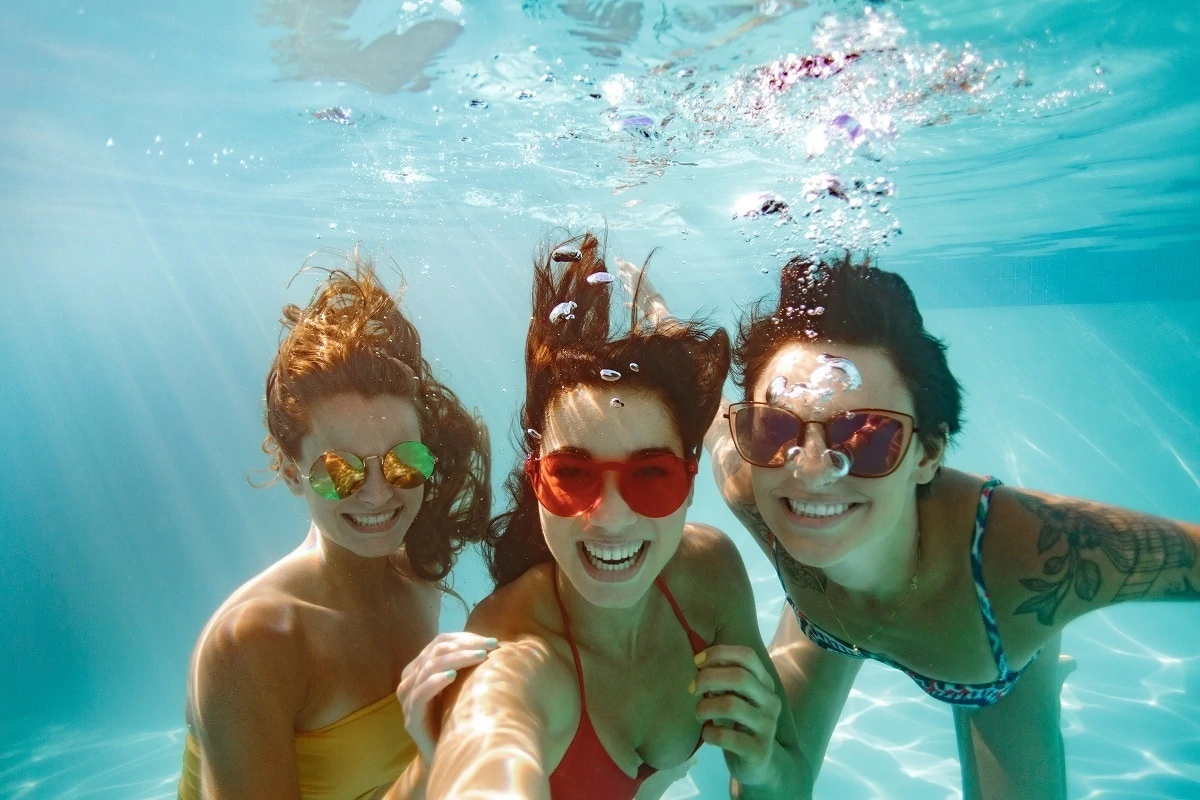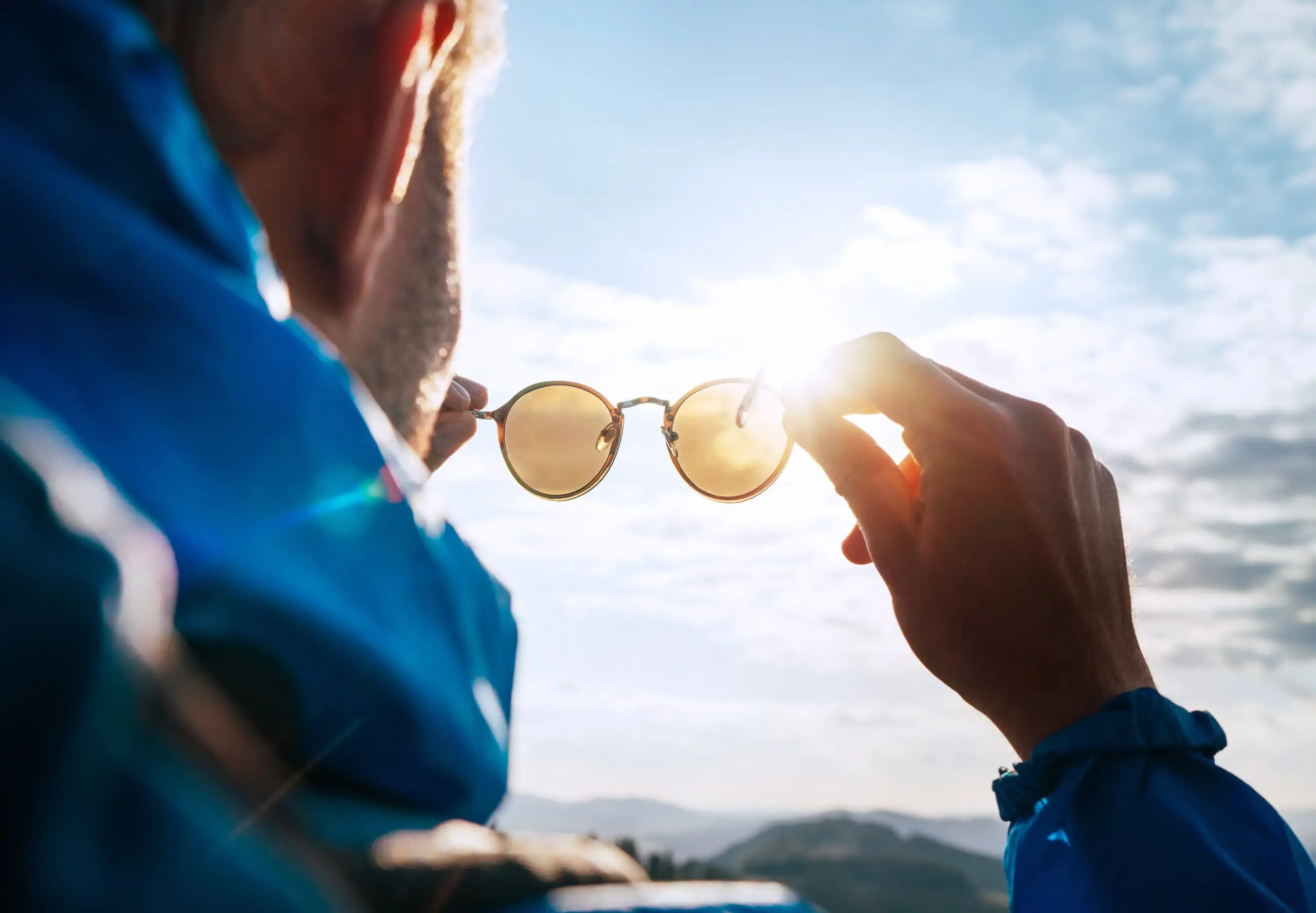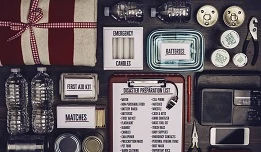Summer Eye Safety Keeps the Focus on Fun

Summer time offers so many opportunities for outdoor fun and adventure that sometimes summer eye safety gets overlooked. You want to be able to see and do everything the warmth and sunshine of the season offers – so whether swimming, sailing, surfing, water skiing, hiking or scuba diving, it’s important that you take precautions to protect your eyes. Here are a few important tips for protecting your eyes during the Summer months.
Sun Protection for Your Eyes
Everyone knows how important it is to protect their skin from harmful UV rays in summer, but did you know the sun can be equally damaging to our eyes? UV rays can increase the risk of eye disease, including cataracts and cancer. Always wear sunglasses: prescription sunglasses if you’re myopic (nearsighted), hyperopic (farsighted), or have astigmatism; regular sunglasses if you have normal vision. If you’ve had LASIK, sunglasses are important for protecting the investment you’ve made in your vision. Avoid sunglasses that just reduce the glare of bright sunlight and don’t offer UV protection. Instead, wear UVA and UVB-blocking sunglasses that are labeled “100 percent UV Protection” or UV 400. Go for wrap-around sunglasses so your eyes are completely protected. If you wear contacts, you’ll still need to wear UV-blocking sunglasses when you’re outdoors. And don’t be fooled into taking them off during cloudy weather because the sun’s rays can pass through the clouds and haze to inflict damage to your eyes. One thing to note: Prescription sunglasses are often limiting in terms of style and affordability – so much so that people often only have one pair.
Protecting Your Eyes in the Water
There’s nothing like getting wet to keep your cool in the summer. Water makes for good times, but lakes, swimming pools, rivers and the ocean – every body of water may be contaminated with bacteria or microorganisms, which is why wearing contact lenses when you’re swimming or playing in the water isn’t recommended. Also, lenses can absorb water as they adjust to the surrounding water content, which causes the lens to stick to the cornea. It can take up to 30 minutes after swimming for lenses and the tear film to return to normal and if you remove them earlier, you can damage your cornea, creating a passage for bacteria and potential infection. Goggles can reduce the risk of contamination and irritation from chlorine, but even high-performance goggles don’t stand up well to surfing, water skiing and kayaking.
Unfortunately, prescription eyeglasses aren’t a great alternative to contacts if you love to spend time in the water. Water spots mean you may not be able to see clearly, plus eyeglasses present a safety issue if they fall off. For scuba enthusiasts, diving masks with prescription lenses can be an expensive proposition. If you’ve had LASIK recently, make sure you’ve gotten the OK from your surgeon to head into the water – swimming and other water sports aren’t recommended during the healing process a week or two after surgery.
Eye Safety for the Action-Adventure-Athletic Types
Playing and pushing the physical limit is best enjoyed under blue skies and sunshine, but soccer, tennis, skateboarding, rock climbing and other high energy and potentially high impact activities should take summer eye safety into account. Sports goggles can protect against objects getting into the eyes like fingers, balls, dirt, grass and other debris. Prescription goggles are available, albeit pricy, and are a better choice than wearing glasses, which pose a significant risk of injury if broken on impact. LASIK vision correction can be a great choice for those who qualify, but eye and UV protection are still needed and available in more and more affordable options.
Fireworks are fun, but leave it to the professionals
The reality is there is no safe way for anyone other than professional pyrotechnicians to use fireworks. Even allegedly “safe” sparklers (which burn at 1800 degrees Fahrenheit) pose a significant risk, particularly to young children. According to Prevent Blindness, thousands of people every year are injured by playing with fireworks, nearly 20 percent of those had eye injuries in 2014. Fortunately, you can avoid this potential risk with this simple summer eye safety tip: The safest and best option is to go and enjoy one of the professional public displays put on in your area as part of the Fourth of July festivities.
A Few Other Basic Summer Eye Safety Tips
- Make sure to wear a hat with a brim or visor to keep the sun out of your eyes.
- Think about eyewear and protection for the kids.
- And, of course, never look directly at the sun!
If Summer is your preferred season of fun and glasses and contacts are getting in the way, it might be time to look into vision correction procedures such as LASIK. You want to see the sunny days of summer clearly and be ready for all the action and adventure the long days afford. Ready to seriously consider your vision correction options? Click to learn more about getting the process started to figure out if LASIK right for you and your vision.




